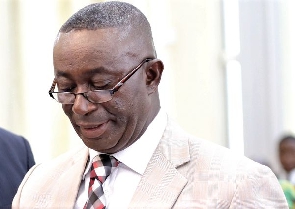Deputy Minister of Railways Development, Hon. Andy Appiah Kubi has opined the passage of the Right to Information (RTI) bill into law will curb corruption in both private and public institutions in the country.
“Ghanaians now can access information easily regarding individuals activities with ease and by that one will be careful of doing corrupt things”, the government appointee pointed out when spoke to MyNewsGh.com‘s reporters in Kumasi
According to the New Patriotic Party (NPP) lawmaker for Asante North in the Ashanti Region, Ghanaians should be elated about the passage of the law which is yet to receive a presidential accent.
About RTI
The RTI is supposed to be a fundamental human right guaranteed by the Constitution and recognized as a right under International Conventions on Human rights.
The passage of the Bill gives substance to Article 21 (1) (f) of the Constitution which states that “All persons shall have the right to information subject to such qualifications and laws as are necessary for a democratic society.”
The RTI Bill was first drafted in 1999 under former President, Jerry John Rawlings.
The National Democratic Congress (NDC) in its 2008 and 2012 election manifestos promised to ensure the Bill was passed. In 2010, it was presented to Parliament for consideration.
In 2011, the government signed unto the Open Government Partnership (OGP) Initiative with a commitment to pass the law. In November 2013, the Bill was formally laid before Parliament.
Former Attorney General, Deputy Dominic Ayine in 2015, moved the Bill for second reading in Parliament. In October 2016, the Bill was withdrawn and replaced with a new one which was immediately laid.
Following the dissolution of the Sixth Parliament of the Fourth Republic and the swearing-in of new Parliament in January 2017, the Bill had to be re-laid by the new government before work commences on it.
Also READ: Parliament passed Akufo-Addo’s luxury vehicle tax under duress – NPP MP exposes govt
Parliament finally passed RTI Bill into law on Tuesday, March 26, 2019, after several policy changes and amendments.
General News of Thursday, 28 March 2019
Source: mynewsgh.com

















